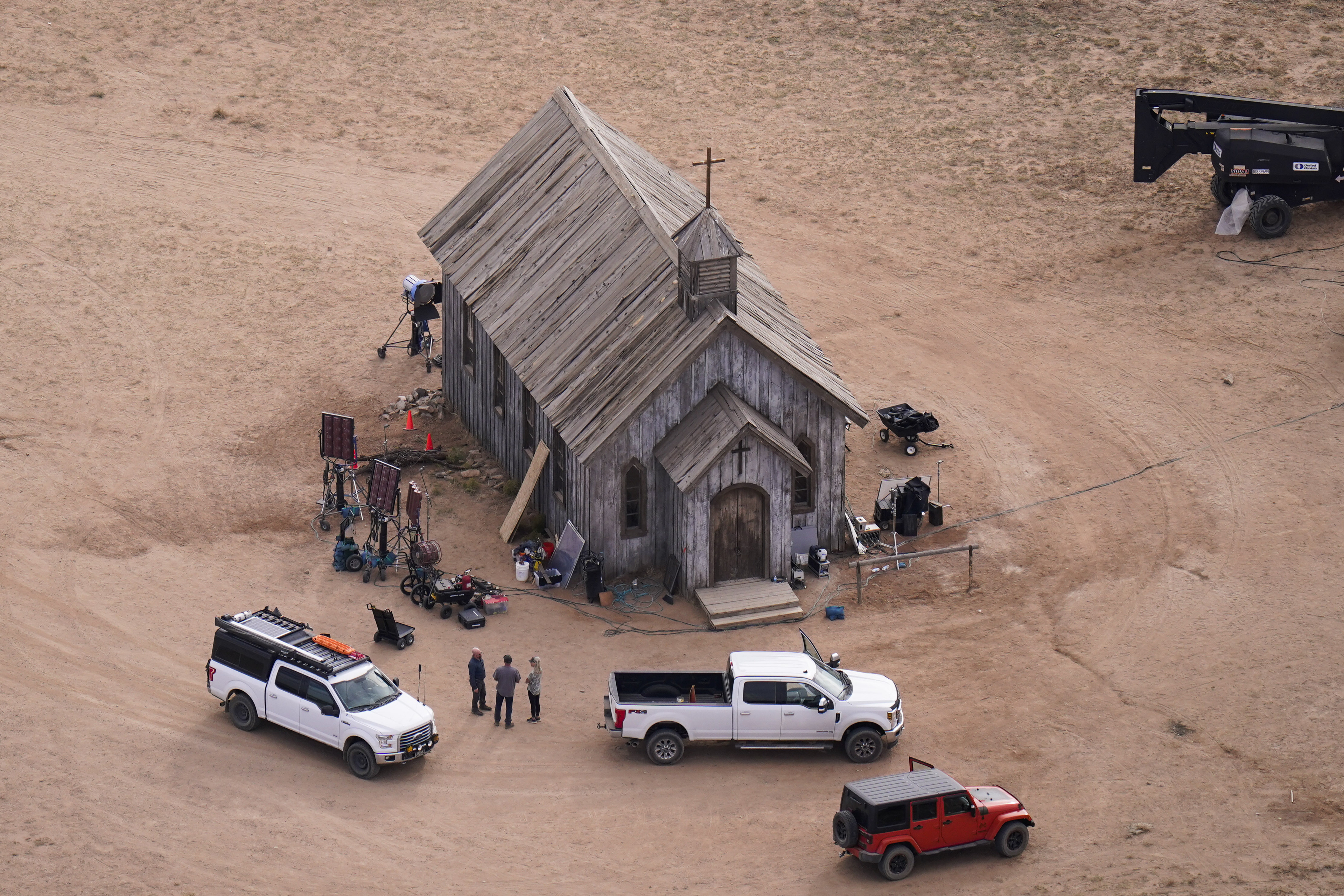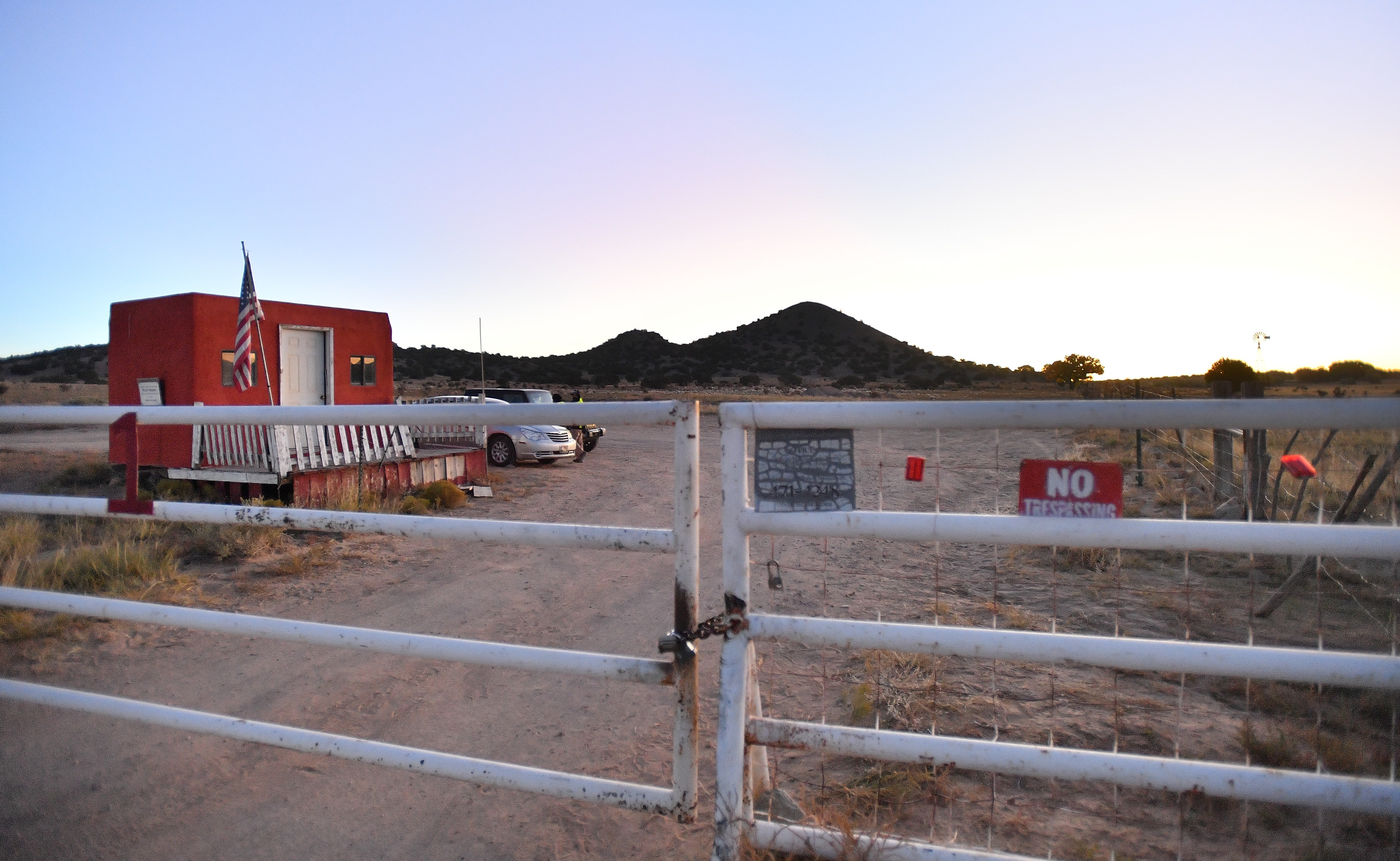
Prosecutors are preparing to present evidence to a grand jury against Alec Baldwin in the fatal 2021 shooting of a cinematographer on the set of a Western movie in New Mexico.
A grand jury did not take up the case Thursday and a decision on whether to revive criminal charges against Baldwin still could be weeks away. It's a secretive process without public access, as prosecutors present evidence and witnesses possibly testify without a cross-examination or immediate vetting by defense counsel.
Baldwin, lead actor and co-producer of “Rust,” was pointing a gun at cinematographer Halyna Hutchins during a rehearsal on a movie set outside Santa Fe in October 2021 when the gun went off, killing her and wounding director Joel Souza. Baldwin has said he pulled back the hammer — but not the trigger — and the gun fired.
We've got the news you need to know to start your day. Sign up for the First & 4Most morning newsletter — delivered to your inbox daily. >Sign up here.
Special prosecutors initially dismissed an involuntary manslaughter charge against Baldwin in April, saying they were informed the gun might have been modified before the shooting and malfunctioned. They later pivoted after receiving a new analysis of the gun and will ask a grand jury to consider recharging Baldwin.
Here are some of the recent developments:
Special prosecutors are not only marshaling evidence against Baldwin for the grand jury to consider, but also actively preparing for a scheduled February 2024 trial against “Rust” movie armorer Hannah Gutierrez-Reed, who has pleaded not guilty to involuntary manslaughter and evidence tampering in the case.
Those preparations for trial include recent subpoenas for documents from producers of “Rust,” and any audio and video recordings held by a Malibu, California, production studio that might include Baldwin on the set of “Rust” or his comments about the film elsewhere.
Neama Rahmani, a former federal prosecutor in Southern California and currently president of West Coast Trial Lawyers, says documents or records uncovered in case against Gutierrez-Reed can be repurposed .
“These can absolutely be used against Baldwin,” he said.
Several previously unreleased video clips of Baldwin on the set of “Rust,” prior to the fatal shooting, emerged Wednesday on NBC News, without indicating who provided the footage. They show Baldwin firing a prop gun outdoors in the desert and voicing concerns about safety.
“You want to go on the other side of the camera? I don't want to shoot toward you,” he says in one clip.
Rahmani says he's seen nothing that would shift core arguments by prosecutors against Baldwin.
“I don’t see how any of this is new evidence. It isn’t,” Rahmani said. “Their theory in the case is going to be that Baldwin pulled the trigger, even though he said he didn't. .... You should never point even a gun at another human being and pull the trigger, even if you believe it contains blanks. That’s their theory of the case. This video doesn’t change any of that.”
Experts in ballistics and forensic testing based in Arizona and New Mexico relied on replacement parts to reassemble the gun fired by Baldwin — after parts of the pistol were broken during earlier testing by the FBI. Their report examined the gun and markings it left on a spent cartridge to conclude that the trigger had to have been pulled or depressed.
The analysis led by Lucien Haag of Forensic Science Services in Arizona stated that although Baldwin repeatedly denied pulling the trigger, “given the tests, findings and observations reported here, the trigger had to be pulled or depressed sufficiently to release the fully cocked or retracted hammer of the evidence revolver.”
An earlier FBI report on the agency’s analysis of the gun found that, as is common with firearms of that design, it could go off without pulling the trigger if force was applied to an uncocked hammer — such as by dropping the weapon.
The only way the testers could get it to fire was by striking the gun with a mallet while the hammer was down and resting on the cartridge, or by pulling the trigger while it was fully cocked. The gun eventually broke during testing.
A grand jury could weigh whether there is “probable cause” to bring charges against Baldwin as the target of the investigation. To indict him, at least eight jurors out of 12 must endorse a probable cause finding. A case can’t be brought twice before a grand jury on the same evidence, so if they don't proceed this time a second grand jury is less likely.
New Mexico-based prosecutors Kari Morrissey and Jason Lewis say additional facts have come to light that they believe show Baldwin has criminal culpability in the death of Hutchins.
Attorneys for Baldwin say a terrible tragedy has turned into this misguided prosecution attempt and that they will answer any charges in court.
In March, David Halls, “Rust” assistant director and safety coordinator, pleaded no contest to unsafe handling of a firearm and received a suspended sentence of six months of probation. He agreed to cooperate in the investigation of the shooting.



